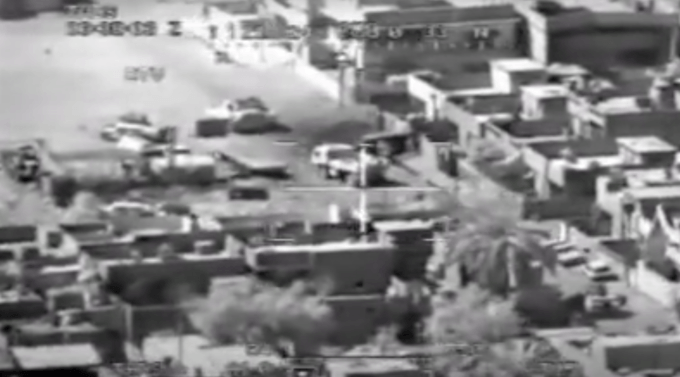
Before he killed himself in Dodge Center, Minnesota, 30-year-old Iraq veteran Danny Holmes would often sit in front of his computer screen looking at photographs in a file marked “Iraq/Graphic.” When he did this, his girlfriend relayed, his lower lip twitched. The pictures had been taken for the US military’s after-action report on an Apache helicopter attack in Iraq on July 12, 2007. The attack became infamous in 2010, when Julian Assange and WikiLeaks released the helicopter video under the title “Collateral Murder.”
As Vijay Prashad wrote on CounterPunch the other day, among the crimes against the state, meaning the US government, which are the real reason for Assange’s persecution, imprisonment and impending hearing in a British court, none so embarrassed war apologists as release of that video, which records in pitiless detail the attack on twelve men and two children.
Among the dead were a Reuters photographer, 22-year-old Namir Noor-Eldeen, and his driver and assistant, 40-year-old Saeed Chmagh. The Apache gunners would not have seen the children; they were in a van driven by a man, their father, who, with two other Good Samaritans, had tried to rescue the injured Chmagh. I call them Samaritans because there is no good reason to believe otherwise. They did not return fire and were not armed. The US gunners speculated that they were insurgents, just as they had speculated that the cameras Noor-Eldeen and Chmagh carried were weapons. The after-action report determined that everything that led up to this scene of unspeakable carnage had been justified. So, as Vijay notes, did David Finkel, an embedded reporter for the Washington Post, whose account of the attack in his 2009 book, The Good Soldiers, reads like a war crime but concludes that 140 rounds from the Apache’s 30-millimeter cannon on a group of people who were taking no aggressive action is but one more reality of war that the rest of us, comfortable in our opinions, unthreatened, hopelessly out-of-context, can never understand and ought not question.
